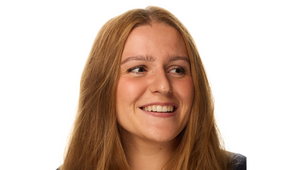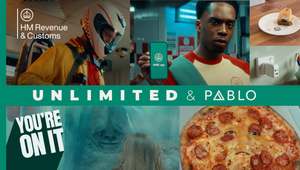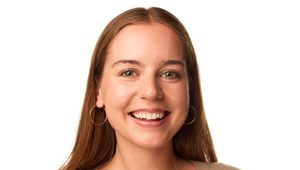
Covid-19: Normal Marketing Rules Apply, but Brands Who Humanise Will Thrive

Covid-19 represents a health challenge of massive proportions, causing unprecedented levels of infection, death and disruption to populations all around the world. Marketers have been struggling to adapt to a consumer and trading landscape that is different from anything they have ever known and at the same time fast-changing and unpredictable. Some have reacted by battening down the hatches, while others have been lucky enough to enjoy continued demand for their products and services. Most lie somewhere between these two extremes and have been doing the best they can.
Despite its scale and severity, Covid-19 does not change the fundamental rules of marketing. The key thing now, as ever, is to understand what your audience needs and see if you can find a better way to deliver that to them than your competitors. The so-called insight ladder still holds true:
Information: Start by collecting basic data about sales, consumer attitudes or behaviours
Insight: Use your experience and sophisticated analytics to turn that data into insight
Strategy: Use those insights to develop propositions for short-term (tactics) or long-term (strategy) change in the form of new products/services, marketing communications propositions, brand repositioning, acquisition strategies, and so on
Implementation: Lay out a detailed roadmap for getting those new propositions tested and into the marketplace, refining as you go. If Covid-19 doesn’t change this fundamental and well-proven process, what it does do is require that brands progress through the steps rather more quickly than usual. Because of that, we at Unlimited Group are using an adapted version of the information and insight elements, that is designed to cater to the current challenging environment:
Reading the room: Track the pulse of the nation. Check new consumer attitudes and perceptions.
Understanding the room in more depth: Analyse human response: Data led analysis of how behaviours are changing and influencing decisions.
Recognising that there are different rooms: Map change against target audiences.
Starting to plan for a longer-term future: Using scenarios to build strategies for potential outcomes.
Reading the room
“Advertising people who ignore research are as dangerous as generals who ignore decodes of enemy signals.” - David Ogilvy
The current combination of isolation and concern makes for the easy transmission of falsehoods and lazy assumptions about what’s happening under lockdown. The consequences can be dire: A month or so back, a whole host of brands were criticised for failing to “read the room” when they opted to roll out April Fool’s Day social content that may have been fine in normal times but were judged to have been in poor taste this time around; More recently, Richard Branson was accused of a “tone deaf” attitude when asking for a government bailout while safely ensconced on his own private tropical paradise.
It should be clear that now, even more than ever, brands need to take the pulse of consumers as often as their research budgets allow. Consumer opinion, which can be fickle at the best of times, is particularly difficult to judge. There is no substitute for fast-turnaround, well-conducted and frequently repeated consumer research. So, with thanks to our colleagues at Walnut Unlimited, here are four observations about the current pulse of the nation:
PEOPLE REGARD COVID AS A KNOWN AND PREDICTABLE THREAT: Despite falling positivity about our own lives, perception of the certainty of our country’s future is not as low as during Brexit negotiations through 2019.
STRESS, LOCKDOWN & HEALTH WORRIES ARE TAKING THER TOLL: Our mental health is the lowest we’ve ever recorded. Only 37% of UK adults say they feel positive about their own mental health.
LOCKDOWN WORKOUTS ARE WORKING – THE JOE WICKS EFFECT: Despite strict lockdown, people are feeling positive about their physical health
SPENDING LESS, SAVING MORE: Despite financial uncertainty, many feel they are saving money in the current lockdown restrictions
Understanding the room in more depth
“There is a great difference between knowing and understanding: you can know a lot about something and not really understand it.” - Charles F. Kettering
As any doctor knows, a patient’s description of what they are experiencing is not reliable enough to make a diagnosis process. It must be followed up with detailed measurements, exploration of the patient’s history and cross-referencing different indicators to understand the reality of what is going on inside the patient. Only when this is done, can the doctor make a diagnosis and suggest an appropriate treatment plan. And, so it is, with consumer research.
While pulse-taking can provide regular reads on what consumers say is happening, it is vital to understand the truth behind such claims, if any intervention is to be successful. This can be done in a variety of ways, from qualitative deep-dives, to sophisticated data analytic approaches. Again, we’ve partnered with some of our colleagues, this time from Realise Unlimited, to kick-start this process, revealing some surprising truths of lockdown behaviours:
SHIFT TO DIGITAL: The lack of a High Street has seen traditional shoppers shift their purchasing online, resulting in booming online sales. This is not just true for retail with schooling, friends hanging out, quiz nights and gym classes all now being delivered online. We are seeing businesses shift their short-term offering but with a view to changing how they operate longer term e.g. gyms continuing to offer ‘virtual’ membership post lockdown.
NEW EXPERIENCES; NEW OPPORTUNITIES: We are seeing consumers trying new brands and products that they have never previously tried. Some of this has been forced upon them but some is because routine behaviours have been disrupted; lockdown is opening people up to new ideas.
NO CHANGE: Putting aside the obvious changes as a result of lockdown, some consumer groups are not changing their long-term behaviours. They are still booking holidays, buying cars, moving house and planning for the future.
CHANGING RISK PERCEPTIONS: Covid-19 has led people to reassess the risks (consciously or unconsciously) associated with their everyday life – and these changing risk profiles will impact how people how people behave and engage post lock down. For example, in the 70+ age group we are seeing some interesting differences between those becoming more risk averse and those with very much a ‘devil may care’ attitude – arguing they have seen worse in their lives.
Recognising that there are different rooms
“Understanding human needs is half the job of meeting them.” - Adlai E Jr Stevenson
The fact that even HRH, The Prince of Wales and the PM, Boris Johnson have been impacted by coronavirus may suggest that it has been a great unifier, affecting all strata of society, but the truth is quite different.
Although our leaders have been assuring us that we are all equally affected by Covid-19, the truth is that lockdown is having a hugely polarising effect in society. Just consider these three examples
- People who have experienced redundancy, being placed on furlough or asked to work reduced hours will be living through lockdown with significantly reduced incomes and restricted finances, while anyone lucky enough to have maintained their incomes will have expanded finances by virtue of spending so much less on commuting, socialising, etc.
- Living situations will also play a huge role: those with health concerns, trying to work from home, particularly if simultaneously trying to home school their children or look out for elderly relatives is likely having a very stressful lockdown, while those not working and not perceiving the virus to represent a direct health threat to them is likely to be battling boredom more than stress.
- And, finally, if social media feeds are to be believed some are using lockdown to treat themselves, indulge in over-eating or drinking too much while others are using the opportunity to detox, exercise more than usual.
How people emerge from lockdown will depend in large part how they went into it and how their circumstances have dictated the kind of lockdown experience they have had.
From the point of view of marketing and audience segmentation this has an interesting and, we would say, vital consequence. This “lockdown” segmentation may be a crucial component to build into your consumer targeting. So, in addition, to your traditional, pre Covid-19 approach of targeting millennials, or first-time mothers or sports fans, you will probably have to think about adding a layer of sophistication into the definitions you use: so, not just mums but mums who have come out of lockdown with diminished spending power, etc.
So, with thanks to our colleague Dan Bowers at TMW Unlimited, here are some of the audiences or mindsets you’ll need to consider in your efforts to market in the immediate post-lockdown New Normal:
STRUGGLING TO SURVIVE: A group cutting back on all spending, struggling with basic human needs and prioritising local-community support.
CAUTIOUSLY CONTROLLED: A group that is concerned for future and the risk of another lockdown. They are likely to be saving money to be prepared for next time, cutting back to focus on the essentials and building a safety net.
RENEWED PRIORITIES: A group that is has been able to save money during lockdown with a new-found appreciation for the simpler things in life: family, friends, quality time together. Likely also to be cutting back on frivolous purchases that were previously important.
EMBRACE LIFE TO FULL: Those keen to make the most of life and ready to make big changes. Have had the time to carefully consider big purchases. Have spent lots of time on review sites, exploring options. Have savings that they are ready to spend.
A CONSCIOUS FUTURE: Always aware of the negative impact of how we live e.g. the environment, wellbeing and society. Feel sense a refreshed optimism for what’s important in life. Keen to prioritise conscious decisions when restarting the economy.
Starting to plan for a longer-term future
Brands are starting to think about what a post-lockdown world looks like. While the temptation to do this is understandable, planning for the future at this point is obviously hampered by the lack of one of the pre-requisites needed: ideally some kind of certainty about the future, or failing that some degree of predictability.
With the future shrouded in so much uncertainty, future-gazing becomes less about hard and fast predictive modelling and more about preparedness for any of the eventualities that may most closely resemble the future. This is scenario planning territory, rather than
With thanks to our colleague Dan Warren at Nelson Bostock Unlimited, we offer the following scenarios as a hypothetical look ahead, largely to illustrate what 3-5 year out Covid-19 scenarios might look like.
THE NEW NORMAL [Increased optimism and increased connectivity]: After a 3-month hiatus, consumers pick up where they left off. But the experience refocuses both personal and business expectations
REMOTE CONTROL [Increased fear and increased connectivity]: The coronavirus leaves an imprint on the way consumers want to live their lives. Months of remote working and increased use of digital services means brands have to find new ways to operate.
LOCAL AUTONOMY [Increased optimism and increased isolationism]: The focus on local communities, from nation states to neighbours, means brands have to find a way to operate in a more complex world and support more focused consumer needs.
SMALLER WORLD [Increased fear and increased isolationism]: A deep global recession requires brands to rethink and reengineer their business for reduced or very different consumer demand, focused on protectionism.
The point is that each of these will create a profoundly different set of challenges for consumers and will, therefore, force them to look to marketers for radically different support and create wildly different conditions within which governments and corporations have to operate. Scenarios are not predictions. Instead they are designed to create a map of possible futures within which we can realistically expect the actual future to sit. To start with, those using scenarios would be advised to spread their efforts, preparing for life under each set of conditions, working through the implications of each future “world” for them. Gradually, as time moves forward, continuing tracking of consumers and the marketplace will create higher probabilities for one or two of the scenarios and efforts can be directed towards those at the expense of the other, less likely scenarios.
It all comes back to human understanding
The future is an undiscovered country. Not only will we have to contend with the greatest global health challenge for over a century but, more than likely we’ll have to do so battling a profound and potentially long-lasting global recession, while battling the ongoing challenge of climate change. In this context, brand responses will need to be both very carefully considered and implemented speedily: not an easy thing to pull off.
What underpins any successful activation is a consumer truth. Understanding what makes your customers tick, what keeps them awake at night and, most specifically, how you can help them is what differentiates brands.
We’ve offered up a range of insights for the different parts of the consumer puzzle: taking regular pulses of the consumer mood, linking with these with both a true appreciation of the behavioural science driving their fluctuating attitudes and needs, while recognising the increasingly nuanced nature of your audiences and the need to pay attention to the longer-term future.
- Written by Nick Chiarelli, head of trends at Unlimited Group.













